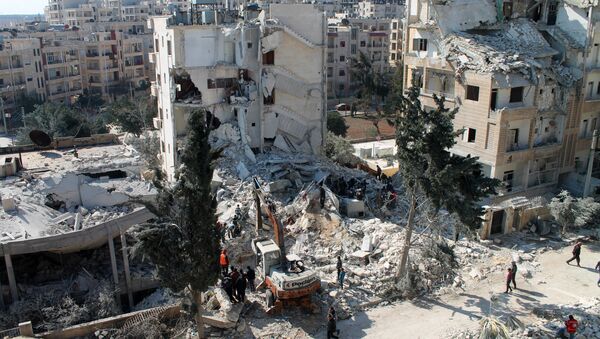"Unlike Daesh*, Jabhat al-Nusra took control of the Idlib de-escalation zone," Lavrov said during the press conference in Washington. "The final result of the development of the situation should be complete liberation of this zone from terrorists, and restoration of legitimate government’s control over this entire territory."
The terrorist group, Lavrov added, took control of the zone and attacked Syrian troops, civilian infrastructure and Russia's Hmeymim airbase. Russian and Syrian forces responded to each of the attacks, but, Lavrov added, it is impossible to endlessly maintain the status quo.
The Russian foreign minister said that Turkey is still unable to separate opposition fighters from terrorists in Syria’s Idlib despite having promised to do so.
"Idlib has become a hotbed of terrorism," Lavrov said. "There, unfortunately, our Turkish colleagues cannot yet fulfil their obligation to separate the armed opposition, which is not tainted by terrorist acts, from Jabhat al-Nusra... as they, our Turkish colleagues, have committed to do by September last year."
In September 2018, Russian President Vladimir Putin and Turkish President Recep Tayyip Erdogan agreed to set up a demilitarized zone in Idlib along the contact line between the armed opposition and government forces during talks in the Russian resort city of Sochi. The withdrawal of heavy weaponry operated by militants is also part of the agreement.
Syria has been mired in a civil war since 2011, with the government forces fighting against numerous opposition groups as well as militant and terrorist organizations. Russia, alongside Turkey and Iran, is a guarantor of the ceasefire in Syria. Russia regularly carries out humanitarian operations across the country and helps Damascus in providing safe passage for the return of Syrian refugees.
*terrorist groups banned in Russia and a wide number of other countries.


